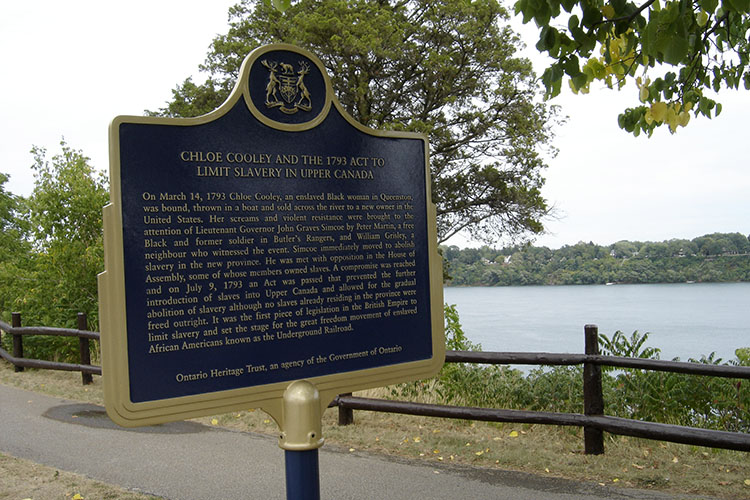Chloe Cooley and the 1793 Act to Limit Slavery in Upper Canada, Niagara-on-the-Lake

On March 14, 1793 Chloe Cooley, an enslaved Black woman in Queenston, was bound, thrown in a boat and sold across the river to a new owner in the United States. Her screams and violent resistance were brought to the attention of Lieutenant Governor John Graves Simcoe by Peter Martin, a free Black and former soldier in Butler's Rangers, and William Grisley, a neighbour who witnessed the event. Simcoe immediately moved to abolish slavery in the new province. He was met with opposition in the House of Assembly, some of whose members owned slaves. A compromise was reached and on July 9, 1793 an Act was passed that prevented the further introduction of slaves into Upper Canada and allowed for the gradual abolition of slavery although no slaves already residing in the province were freed outright. It was the first piece of legislation in the British Empire to limit slavery and set the stage for the great freedom movement of enslaved African Americans known as the Underground Railroad.
This story's themes
Most viewed themes

